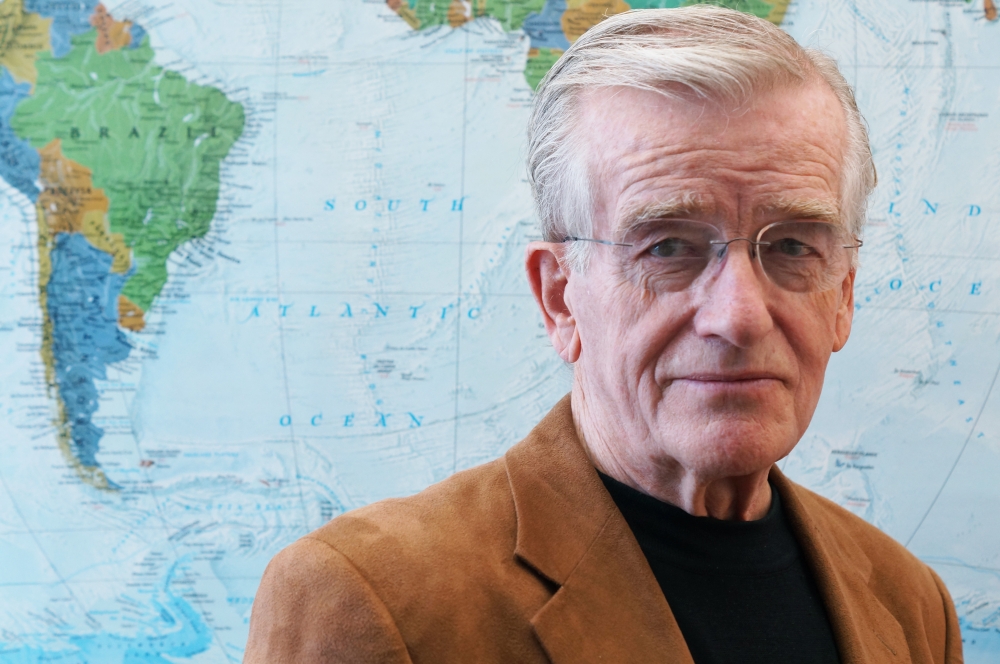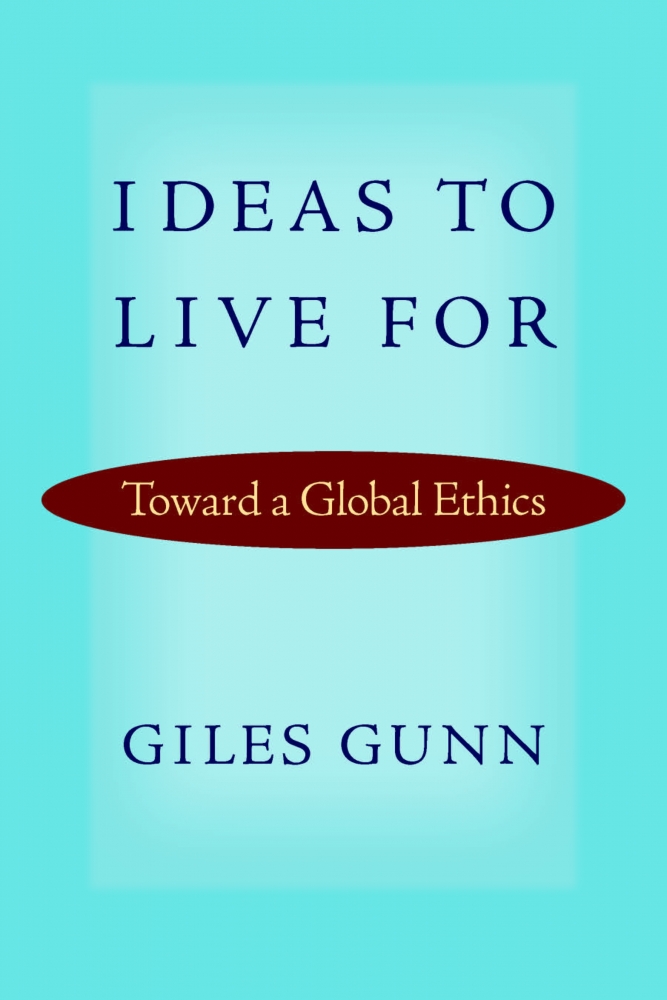
Ideas to Live For

From religion studies to literary criticism, to American studies, to philosophy, to global studies, Giles Gunn’s academic career has been winding and wide-ranging. At the heart of all this “ambulation,” as he calls it, Gunn has always been consumed by one central question: “What is the better life to be led?”
A professor of global studies and of English at UC Santa Barbara, Gunn found that common thread while writing the new book, “Ideas to Live For: Toward a Global Ethics” (University of Virginia Press, 2015). His intellectual evolution is on full display in this narrativized collection of Gunn’s own previously published essays.
Spanning more than 20 years of scholarship on issues including the psychology and politics of pragmatism, the ethics of human solidarity and the place of culture in the misshaping of international affairs, the pieces in “Ideas to Live For” are each prefaced with a newly penned introduction meant both to reflect on Gunn’s original intent and elucidate his current thinking.
“When I got the chance to move into global studies, it was as though I’d finally found myself, at what was then age 60, in the field I’d always been longing to identify myself with,” said Gunn, a UCSB faculty member since 1985 and a founder of the institution’s well-regarded global studies program. “And since then I’ve been able, in a much more indulgent, but also an active and aggressive way, to pursue the kind of intellectual issues I really am grappling with. I’ve always been interested in ethical questions. What is the better life to be led under particular circumstances, in the face of certain specific challenges?
“And this is what I’ve been able to do,” Gunn added, of both his career and his new book, “bringing to bear in global studies all my interests, essentially, as a cultural theorist and critic, into this vast, seemingly confusing domain of issues and problems and traditions that go back not just centuries but millennia.”
It is those issues and problems, increasingly daunting in what he characterizes as “our constantly re-globalizing world,” that Gunn said were top of mind as he embarked upon what ultimately became “Ideas to Live For.”
The essay collection begins with Gunn’s “intellectual autobiography,” tracking his development from student to interdisciplinary academic with a long-held scholarly focus on what he now calls global ethics. It goes on to tackle, if indirectly, the task of constructing a new “critical globalism,” Gunn writes, through historical perspectives, conceptual and theoretical models, normative standards and political strategies — all with an eye toward the “civically inclusive” and “democratically humane.”
In examining the collective, global sense of “the human,” and the threats to that notion posed by fundamental values and systemic violence, and collisions thereof, Gunn wonders whether such dangers may best be mitigated with understanding and compromise rather than fear and force.
“When I write about my renewed interest in the practice, as opposed to the ideology, of cosmopolitanism, I argue that it needs to be understood less, or not only, as a form of global citizenship or an ideal of hospitality, but as a motive of neighborliness,” Gunn said. “That’s not in the sense of just your next door neighbor, but anybody by whom you are bounded as we are now bounded by the Iranians, or the Syrians, or anything else.
“The ethical challenge here is not merely to welcome, acknowledge, accept, support or even embrace the stranger, but to resist the temptation to treat the needs or desires of others simply as a mirror of our own,” he continued. “The task is not to see others as versions of ourselves, but to see ourselves, insofar as we can, as versions of them, in light of what they need and want, by putting their needs and wants on the map of our privileges and desires. And that is something I think we can do.”



